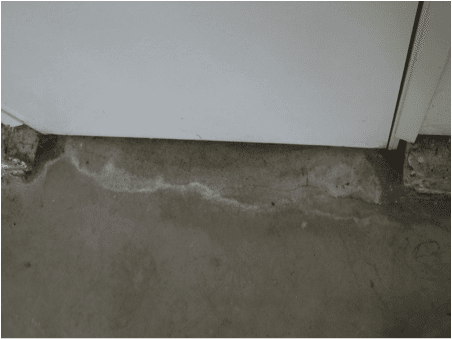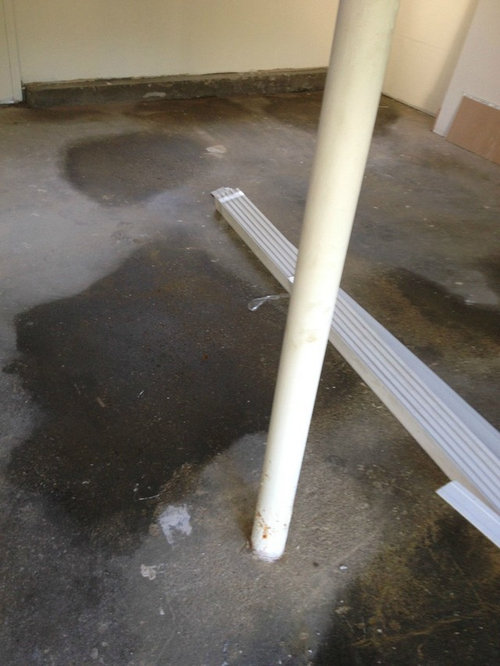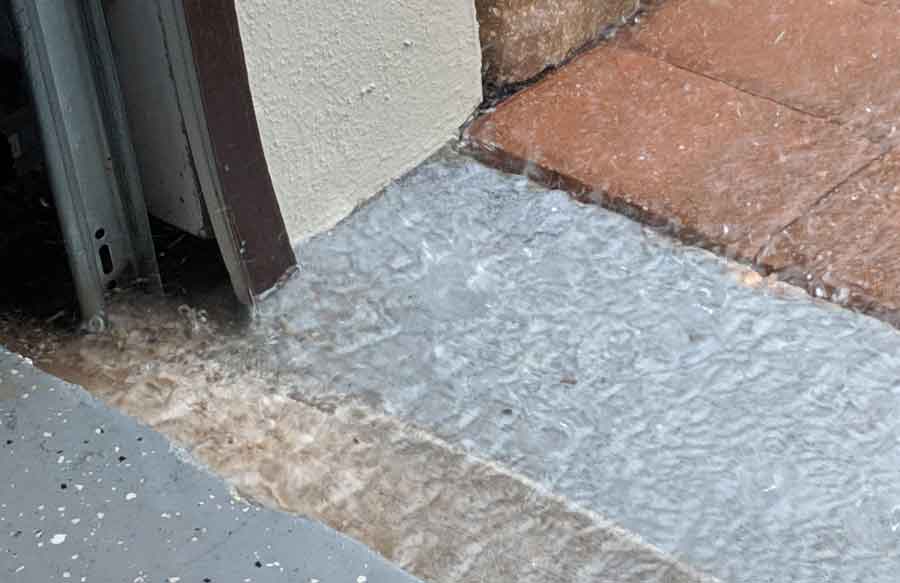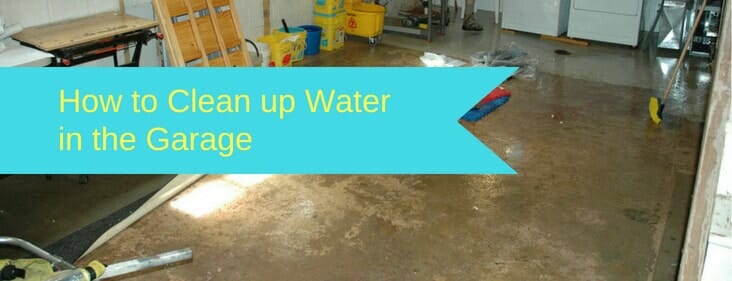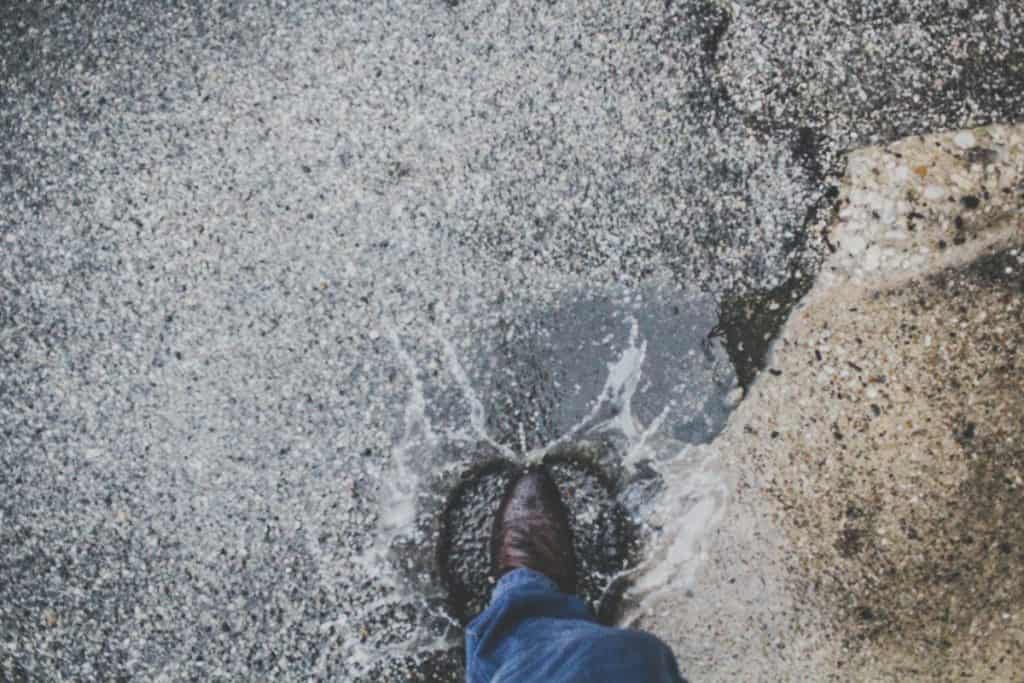Common Causes of Garage Floor Wetness During Rainfall
A wet garage floor can be a frustrating and inconvenient problem, especially during rainy seasons. Understanding the common causes of garage floor wetness is essential for finding effective solutions. Here are several factors that contribute to this issue and offer insights into how to address them.
- Poorly Sealed Garage Doors: One of the primary culprits behind a wet garage floor is poorly sealed garage doors. Over time, weatherstripping and seals can deteriorate, allowing rainwater to seep through gaps and accumulate on the floor. Regular inspection and maintenance of garage door seals can help prevent this issue.
- Faulty Gutters and Downspouts: Another common cause of garage floor wetness is malfunctioning gutters and downspouts. When these drainage systems fail to divert water away from the garage, it can lead to water pooling around the foundation and eventually seeping into the garage. Cleaning and repairing gutters and downspouts regularly can help prevent this problem.
- Inadequate Slope or Grading: Improper slope or grading around the garage can also contribute to water accumulation on the garage floor. If the ground around the garage is not sloped away from the structure, rainwater can flow towards the garage and cause wetness. Consulting a professional landscaper or contractor to correct the slope can help alleviate this issue.
- Cracks in the Garage Floor: Cracks in the garage floor are not only unsightly but can also allow water to seep through during rainfall. These cracks can be caused by settling, temperature fluctuations, or improper construction. Repairing cracks with epoxy or concrete patching materials can help prevent water infiltration.
- Condensation and Humidity: In some cases, garage floor wetness may not be a result of external factors but rather internal ones. Condensation and high humidity levels within the garage can cause moisture to accumulate on the floor. Proper insulation, ventilation, and dehumidification measures can help mitigate this problem.

Understanding the Role of Drainage Systems in Garage Flooding
Garage flooding can be a nightmare for homeowners, causing extensive damage to vehicles, storage items, and the garage structure itself. Understanding the role of drainage systems in preventing garage flooding is crucial for maintaining a dry and functional space. Let’s discuss the importance of proper garage drainage systems and explore various solutions to combat garage flooding.
- Importance of Garage Drainage Systems: Garage drainage systems play a vital role in diverting rainwater away from the structure, preventing it from pooling on the floor and causing flooding. These systems typically consist of floor drains, trench drains, or French drains, which collect and channel water toward proper outlets.
- Installing Floor Drains: Floor drains are a common feature in garages, designed to collect and drain away excess water. They are typically placed strategically at the lowest point of the garage floor, allowing water to flow into the drain and be directed toward the main sewage system or an external drainage area.
- Trench Drains for Effective Water Channeling: Trench drains are another effective solution for managing garage floor flooding. These drains consist of long, narrow channels embedded in the floor, designed to collect water over a larger surface area. They can handle higher volumes of water and are particularly useful for garages with sloped floors.
- Implementing French Drains: French drains are an excellent option for garages located in areas with heavy rainfall or poor drainage. These drains consist of perforated pipes laid beneath the garage floor or around its perimeter. The pipes collect water and direct it away from the garage, preventing flooding.
- Regular Maintenance and Cleaning: To ensure the effectiveness of your garage drainage system, regular maintenance and cleaning are essential. Clearing debris, inspecting for clogs or damages, and ensuring proper water flow are crucial steps in preventing garage flooding. Additionally, periodic professional inspections can help identify any potential issues and address them promptly.
How to Identify and Fix Leaks in Your Garage
A leaky garage can cause a multitude of problems, including a wet floor during rainfall. Identifying and fixing leaks in your garage is essential for maintaining a dry and functional space. Let’s discuss how to identify the source of leaks and provide practical solutions for fixing them.
Visual Inspection: Start by conducting a visual inspection of your garage, paying close attention to areas where water may be entering. Look for signs of water stains, discoloration, or mold growth on walls, ceilings, and floors. These visual cues can help pinpoint the source of the leak.
Check Garage Door Seals: One common area for leaks is the garage door seals. Inspect the weatherstripping and seals around the garage door for any signs of wear, gaps, or damage. Replace or repair them as necessary to ensure a tight seal and prevent water from seeping in.
Examine Windows and Vents: Windows and vents in the garage can also be sources of leaks. Check for cracks, gaps, or damaged seals around these openings. Apply caulk or weatherstripping to seal any gaps and prevent water from entering.
Inspect Roof and Gutters: Leaky roofs and faulty gutters can contribute to garage leaks. Inspect the roof for damaged or missing shingles, cracked flashing, or deteriorating sealant. Repair any issues promptly to prevent water from infiltrating the garage. Similarly, ensure that gutters are clean and properly functioning to divert water away from the garage.
Address Plumbing and Pipe Leaks: Leaky plumbing or pipes within the garage can also cause moisture problems. Inspect visible pipes for signs of leakage or dripping. Fix any leaks by tightening fittings, replacing damaged pipes, or seeking professional plumbing assistance.
Waterproofing Measures: If your garage has a concrete floor, consider applying a waterproofing sealant to prevent moisture penetration. There are various sealant options available, including epoxy coatings and concrete sealers. Follow the manufacturer’s instructions for proper application.
The Importance of Proper Garage Floor Sealants
A properly sealed garage floor is essential for preventing water penetration, moisture damage, and the inconvenience of a wet floor during rainfall. Let’s talk about the importance of using proper sealants for garage floors and discuss the benefits they provide.
Water Protection: The primary purpose of a garage floor sealant is to create a barrier that prevents water from seeping into the concrete. Sealants fill in the pores and cracks of the concrete, reducing water absorption and protecting the floor from moisture damage. This is particularly important during rainfall when water can accumulate on the garage floor.
Stain Resistance: Garage floors are susceptible to stains from various substances, such as oil, chemicals, and dirt. A quality sealant provides stain resistance, making it easier to clean spills and preventing permanent discoloration. This helps to maintain the appearance and longevity of your garage floor.
Enhanced Durability: Sealing the garage floor enhances its durability by protecting it from wear and tear. The sealant forms a protective layer that acts as a shield against abrasion, impacts, and chemical damage. This is especially important if you use your garage for heavy-duty activities or as a workshop.
Dust Reduction: Untreated concrete floors can generate dust particles, which can be carried around the garage and into the house. A proper sealant reduces dusting by minimizing the release of fine particles from the concrete. This contributes to a cleaner and healthier environment in and around your garage.
Aesthetic Appeal: A well-maintained garage floor adds to the overall aesthetic appeal of your home. Sealants are available in various finishes, including glossy, matte, or satin, allowing you to choose a look that suits your preferences. Additionally, sealants can enhance the color and texture of the concrete, giving it a polished and professional appearance.
Preventive Measures to Keep Your Garage Floor Dry During Rainy Seasons
Preventing a wet garage floor during rainy seasons requires proactive measures to ensure proper drainage and protection against water infiltration. Let’s discuss preventive measures that you can take to keep your garage floor dry and avoid the hassle of dealing with water accumulation.
Maintain Proper Garage Door Seals: Regularly inspect and maintain your garage door seals to ensure a tight and effective seal against water intrusion. Replace worn-out weatherstripping and seals to prevent water from seeping through gaps during rainfall.
Install a Garage Floor Drain: Consider installing a garage floor drain to effectively channel water out of the garage. A floor drain can collect and direct water toward the main drainage system, keeping your garage floor dry even during heavy rainfall.
Improve Garage Floor Slope: Ensure that your garage floor has the proper slope to allow water to flow towards the floor drain or out of the garage. If the floor doesn’t have a natural slope, consult a professional to adjust the slope or install a trench drain to facilitate effective water drainage.
Maintain Gutters and Downspouts: Regularly clean and maintain your gutters and downspouts to ensure proper water flow and prevent overflow. Clean out debris, remove blockages, and repair any damaged sections to prevent water from pooling around the garage and seeping inside.
Apply a Garage Floor Sealant: Sealing your garage floor with a quality sealant provides an additional layer of protection against water infiltration. The sealant fills in cracks and pores, reducing water absorption and helping to keep your garage floor dry during rainy seasons.
Keep the Garage Well-Ventilated: Proper ventilation is crucial for preventing moisture buildup inside the garage. Ensure that your garage has adequate ventilation to allow for the circulation of air, which helps to reduce humidity levels and prevent condensation on the floor.
Garage floor wet spot along the wall after rain The Garage Journal
Why Does My Garage Floor Get Wet When it Rains
Related Posts:
